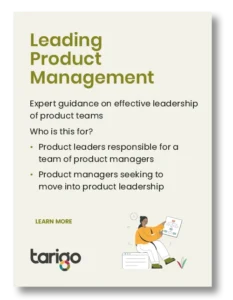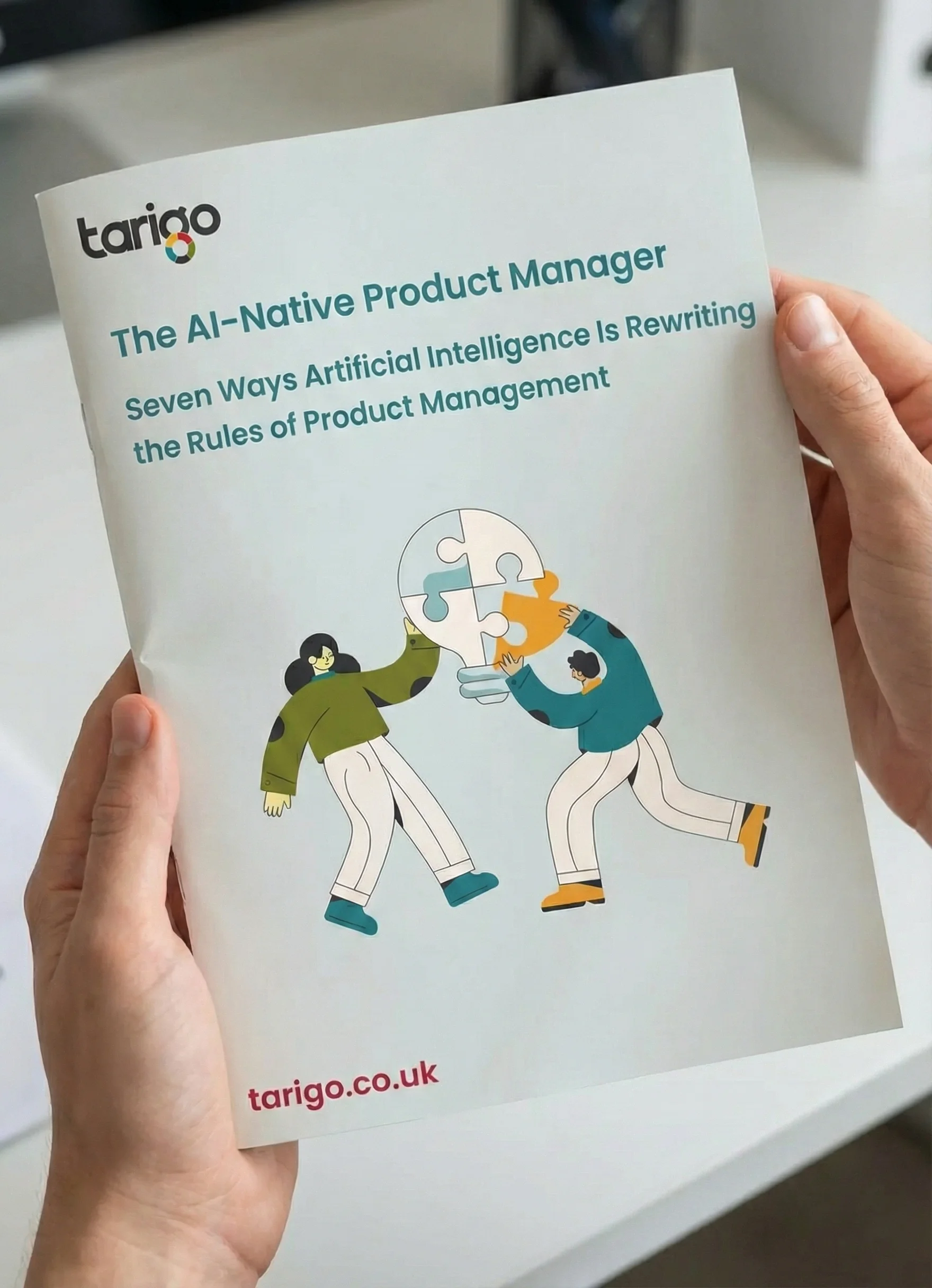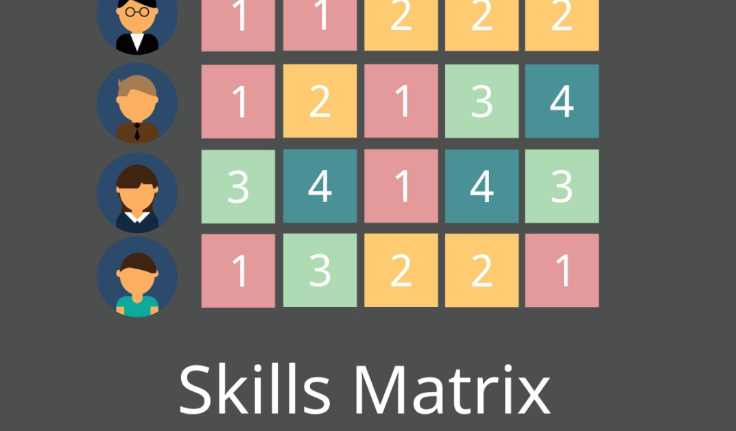
Product teams manage products end-to-end, from ideation to launch and beyond. To be successful, product teams need a wide range of skills and expertise, across five key areas: Direct, Discover, Define, Deliver and Drive.
Direct, Discover, Define, Deliver and Drive is our Tarigo 5D framework. It’s how we describe what product teams do to bring successful products and services to market.
- Direct: Building a foundation of insights and research of customers, markets and competitors, and crafting a compelling and concise vision.
- Discover: Deeply understanding customer pain and gain, identifying opportunities, and validating and assessing ideas.
- Define: Understanding customer journeys, defining the products and services, prioritising and getting into the commercial detail.
- Deliver: Working with engineering, design, and marketing and sales teams to build and launch products.
- Drive: Measuring product performance, gathering feedback, and iterating on products, and continuously learning.
The skillset needed to deliver end-to-end products is broad, and the typical Product Manager doesn’t have all the skills, but the typical business doesn’t need all the skills, but they do need to align.
Using the 5 D framework, we can describe activities that take place to deliver successful products, and we can consider these activities as skills and capabilities that individuals in the product teams have strengths or weaknesses in.
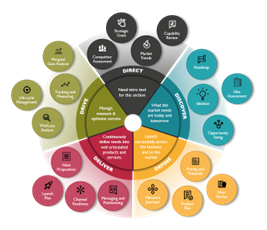
Here at Tarigo we have considered all the activities that teams perform across the 5 D framework. In Direct, for example individuals complete competitive assessments, understand strategic goals, and describe market trends.
So, Product Leaders can assess individual and team capabilities we’ve created a set of capability cards that come from the activities that product teams perform across the 5 D framework.
Capability cards describe the activities from a skill set perspective, and we use these cards to better understand the strengths and weaknesses across teams.
Competitive assessment, an example capability card
- Can the team member effectively describe the direct and indirect competitors?
- Can the team member describe their strengths and weaknesses, and how they conceive product?
- Can the team member describe how we mitigate against the strengths and weaknesses of the competitors and how we differentiate?
It is important to understand the team and individual capability against the priorities of our products and services. Remember, how I said the skill set is broad for Product Managers, but the typical organisation won’t need it all, but it is important to be aligned.
So, 1) we set priorities for products & services, and then 2) we translate them into tasks, and then 3) we assess the teams and individual capabilities to deliver those using the capability cards.

From here, we can build out team views and understand the average skills curve across the team, we can also create action cards for an individual. If someone has a skill rating of between 8-10, they should be considered highly skilled in that capability, and they may be able to support or coach someone else in the team who doesn’t have that capability.
If someone is a 5–7, in something they may have knowledge of the activity but don’t have practice at doing it or full confidence and experience in that activity, so they should be encouraged to ‘do it’.
If the individual has a score of 0-4, in something they may need to learn it first, and, they probably need training first, before they ‘do it’.
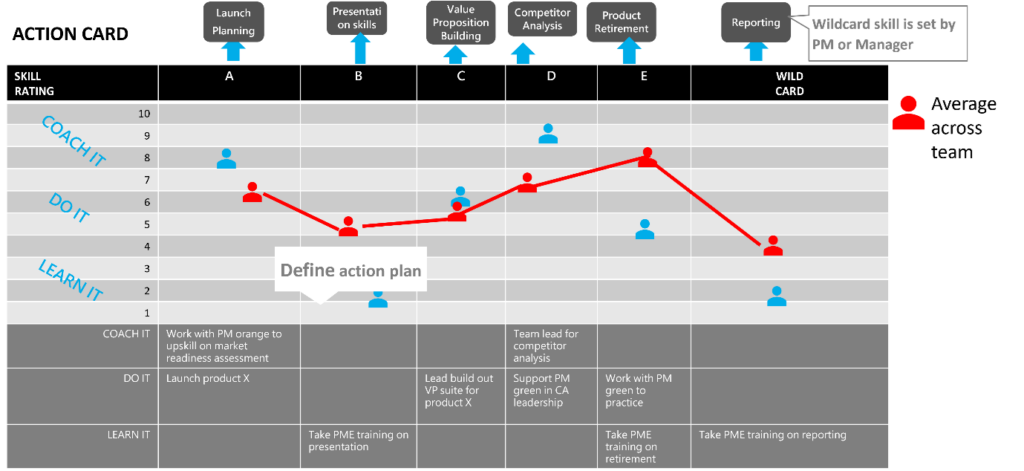
This information can develop team training plans, identify areas for improvement, and even make informed hiring decisions. If we spot any gaps against your priorities you can train, or coach or hire to fill the gaps.
Here are some additional tips for assessing skills in product teams:
- Be specific about the skills you are assessing, and make sure they are aligned to your priorities. Remember you probably don’t need it all!
- Consider the context. Different skills are more important in different roles and at different stages of the product development, and product life cycle process.
- Be fair and objective. Avoid making assumptions about team members based on their current role, get to know them, get them to share their experiences.
- Provide regular feedback. This will help team members to develop their skills and improve their performance.
- Make the skills assessment across the team transparent and involve all team members in raising the bar. Create a culture of continuous improvement.
In today’s climate of a skills shortage, great product team are nurtured and developed. If you need any help with this, please reach out.
